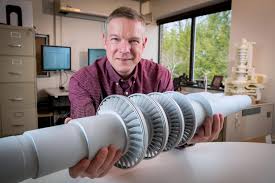
Breaking News
 Shocking Email From Epstein Files Implicates Former US Ambassador, Clintons, Bidens,...
Shocking Email From Epstein Files Implicates Former US Ambassador, Clintons, Bidens,...
 Episode 490 - The 9th Annual Fake News Awards
Episode 490 - The 9th Annual Fake News Awards
 Epstein Files Dump, Gov't Shuts Down, Trump ROASTS Don Lemon...
Epstein Files Dump, Gov't Shuts Down, Trump ROASTS Don Lemon...
 SILVER MASSACRE: The Crash Reveals CME-Shanghai Coordination (Bullish Signal)
SILVER MASSACRE: The Crash Reveals CME-Shanghai Coordination (Bullish Signal)
Top Tech News
 Critical Linux Warning: 800,000 Devices Are EXPOSED
Critical Linux Warning: 800,000 Devices Are EXPOSED
 'Brave New World': IVF Company's Eugenics Tool Lets Couples Pick 'Best' Baby, Di
'Brave New World': IVF Company's Eugenics Tool Lets Couples Pick 'Best' Baby, Di
 The smartphone just fired a warning shot at the camera industry.
The smartphone just fired a warning shot at the camera industry.
 A revolutionary breakthrough in dental science is changing how we fight tooth decay
A revolutionary breakthrough in dental science is changing how we fight tooth decay
 Docan Energy "Panda": 32kWh for $2,530!
Docan Energy "Panda": 32kWh for $2,530!
 Rugged phone with multi-day battery life doubles as a 1080p projector
Rugged phone with multi-day battery life doubles as a 1080p projector
 4 Sisters Invent Electric Tractor with Mom and Dad and it's Selling in 5 Countries
4 Sisters Invent Electric Tractor with Mom and Dad and it's Selling in 5 Countries
 Lab–grown LIFE takes a major step forward – as scientists use AI to create a virus never seen be
Lab–grown LIFE takes a major step forward – as scientists use AI to create a virus never seen be
 New Electric 'Donut Motor' Makes 856 HP but Weighs Just 88 Pounds
New Electric 'Donut Motor' Makes 856 HP but Weighs Just 88 Pounds
 Donut Lab Says It Cracked Solid-State Batteries. Experts Have Questions.
Donut Lab Says It Cracked Solid-State Batteries. Experts Have Questions.
This Desk-Size Turbine Is Capable Of Powering An Entire Town

As technology advances, devices of all kind tend to get smaller. The desk-size turbine invented by GE Global Research is no exception.
According to MIT Technology Review, the turbine is capable of powering a small town of about 10,000 homes. How is this possible? The prototype is driven by "supercritical carbon dioxide," which is in a state that at a very high pressure and up to 700 °C exists as neither a liquid nor a gas. After the carbon dioxide passes through the turbine, it's cooled and then re-pressurized before returning for another pass.
The unit's makers believe that the turbine could be useful in grid storage. That's because the turbine is compact in size and can turn on and off rapidly. In fact, the invention is projected to be over 5 percent more efficient than steam turbines in the process of converting heat into electricity. Even more promising, the GE prototype is 10 megawatts, but the company would like to scale it up to 33 megawatts.
Said Doug Hofer, the GE engineer in charge of the project:
"The key thing will come down to economics."



